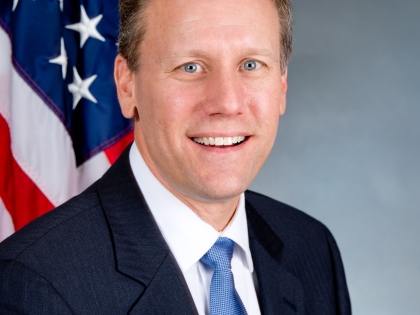
Ethics, campaign finance oversight just got weaker in Albany, say observers
Published: April 8, 2014 8:58 PM
By MICHAEL GORMLEY michael.gormley@newsday.com
ALBANY -- The morning after the legislature passed the fourth straight on-time state budget, Gov. Andrew M. Cuomo and legislative leaders grinned in front of news cameras, gripped a white ash Adirondack baseball bat, and declared they hit a grand slam.
But some lawmakers and political observers said that leaders' most potent weapon in this budget adopted late Monday night was their curve ball.
The leaders praised their budget for its tax breaks for Wall Street banks and corporations, its property tax rebates and record school aid. But some lawmakers and good-government advocates said the leaders also quietly weakened ethics and campaign finance enforcement in Albany, just days after the FBI agents hauled boxes of documents from a Queens assemblyman's office in the latest in a string of federal probes.
"You see it a lot in Albany," said Blair Horner of the New York Public Interest Research Group. "The public rhetoric is completely out of sync with the private reality of government."
'Test case' for campaigns
Leaders, however, argued the budget reflects the vagaries of democracy and the need to compromise with a Senate co-led by Republicans and Democrats and, an Assembly with an overwhelming Democratic majority. They announced what they called a landmark bipartisan agreement for a "test case" for public financing of campaigns to limit the influence of big-dollar donors in state government. But the longtime supporters of public campaign finance, including Common Cause, said the measure was crafted so poorly that it is worse than nothing and will doom the effort long term.
The measure applies only to the state comptroller's race and only for this year -- just seven months from statewide elections -- which its supporters say can't be implemented in time. Good-government advocates say the bill is so flawed no candidates should participate. State Comptroller Thomas DiNapoli said Monday he would not participate.
Meanwhile, the leaders abruptly ended the work of Cuomo's anti-corruption commission. In its place, a new investigator and staff will be added to the Board of Elections with a tiebreaking vote on the board known for gridlock because of partisan votes. But that new system may months away.
Federal probes' big reach
More than 30 state officials have been targeted in federal probes over the past eight years. Two weeks ago, Assemb. William Scarborough (D-Jamaica) said he was questioned by FBI agents for an hour about reimbursements for travel expenses. He wasn't arrested.
"These issues are being raised in ways that seem to be designed to fail, to kill the issue," said state Sen. Michael Gianaris (D-Queens) in an interview. "And that's the misdirection: People championing the issue, but then attempting to achieve them in ways they know that is going to be unsuccessful."
He argues the same tactic was used March 17, when the Dream Act was defeated. The act would provide college aid to immigrants brought to the United States illegally as children. After Cuomo, Assembly Speaker Sheldon Silver and Senate co-leader Jeff Klein who supported the act apparently agreed to omit the measure in private budget talks, the Dream Act bill was rushed to the Senate floor with little notice. The bill came up two votes short, with a potential "yes" vote absent.
In the meantime, public financing of campaigns and the Dream Act continue to be used by both parties to energize their base during this campaign fundraising season.
The leaders, however, say there is far less sinister reason for these actions: democracy.
"At the end of the day, I don't think the votes exist in both houses to pass public [campaign] finance," Cuomo said Tuesday. "And that's a fundamental issue."
"All the great governors in this state had one common denominator: They were about making progress," Cuomo said. "They were all -- FDR, Teddy Roosevelt, Rockefeller, Mario Cuomo -- they would talk about compromise to advance the goal and inaction is the worst thing. . . . We have moved the state forward."
"It's the art of compromise," said state Sen. David Valesky (D-Oneida), a member of the Independent Democratic Conference, which shares majority control of the chamber with Republicans.
Just how the leaders came up with the "public trust act" that ends the Moreland commission and creates public financing of campaigns was questioned on the Senate floor Monday. State Sen. Liz Krueger (D-Manhattan) said the measure is the result of a "snipe hunt," a joke where insiders try to dupe the naive.
Gianaris asked Senate Finance chairman John DeFranciso (R-Syracuse) who came up with the idea in the closed-door negotiations between Cuomo and the three majority leaders.
"Those negotiations in many situations are private negotiations so no one is unfairly blamed for one position or another," DeFrancisco said. "The level of trust to reach a result would be hurt."
That drew an exasperated response from Gianaris: "The idea that letting the public be aware . . . would somehow hurt the cause is exactly the problem we're having."

